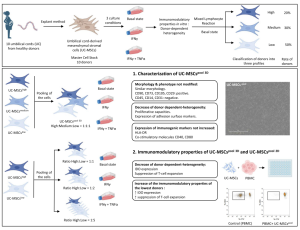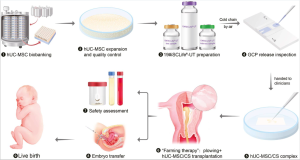Exosome RNA Research & Industry News , Feb 19, 2024
Bladder urothelial carcinoma (BLCA) poses a significant challenge in both diagnosis and treatment. However, recent advancements in research offer promising avenues for managing this aggressive cancer. A groundbreaking study explores the potential of extracellular vesicles (EVs), specifically microvesicles, in identifying therapeutic targets and diagnosing BLCA using easily accessible urine samples.
In this in vitro study, researchers from University Hospital Schleswig-Holstein focused on targeting two transmembrane glycoproteins highly enriched in cancer-derived EVs: tissue factor (TF) and CD147. Both molecules have been implicated in promoting tumor progression. By simultaneously targeting TF and CD147 on urothelial cancer-derived EVs, researchers aimed to impede cancer cell migration and metastasis.
The study involved collecting cell culture supernatants from invasive and non-invasive bladder cancer cell lines, as well as urine samples from BLCA patients. Large, microvesicle-like EVs were isolated and characterized using advanced techniques such as electron microscopy, nanoparticle tracking analysis, and flow cytometry.
Results revealed that EVs from patients with muscle-invasive BLCA and aggressive bladder cancer cell lines exhibited higher TF activity and CD147 expression levels compared to non-invasive counterparts. Moreover, EVs derived from invasive cancer cells triggered migration, secretion of matrix metalloproteinases (MMPs), and invasion, suggesting their role in promoting tumor progression.
Importantly, the study demonstrated that combining a CD147 inhibitor with low molecular weight heparins to induce TFPI release may be a promising therapeutic approach for BLCA management. TFPI, an endogenous anticoagulant protein, interfered with the tumor-promoting actions of cancer-derived EVs, suppressing migration, MMP production, and invasion.
These findings highlight the potential of targeting EVs as a novel therapeutic strategy for BLCA. By disrupting the communication network mediated by EVs and inhibiting key molecules involved in tumor progression, researchers pave the way for developing more effective treatments for this aggressive cancer. With further validation and clinical trials, this approach holds promise for improving outcomes and enhancing the quality of life for BLCA patients.
References
Boddu VK, Zamzow P, Kramer MW, Merseburger AS, Gorantla SP, Klinger M, Cramer L, Sauer T, Gemoll T, von Bubnoff N, Gieseler F, Darabi M. (2024) Targeting cancer-derived extracellular vesicles by combining CD147 inhibition with tissue factor pathway inhibitor for the management of urothelial cancer cells. Cell Commun Signal 22(1):129.
Source: Exosome RNA Research & Industry News









